Great at Good
November 16, 2018
By Luke Woodling ’17MBA
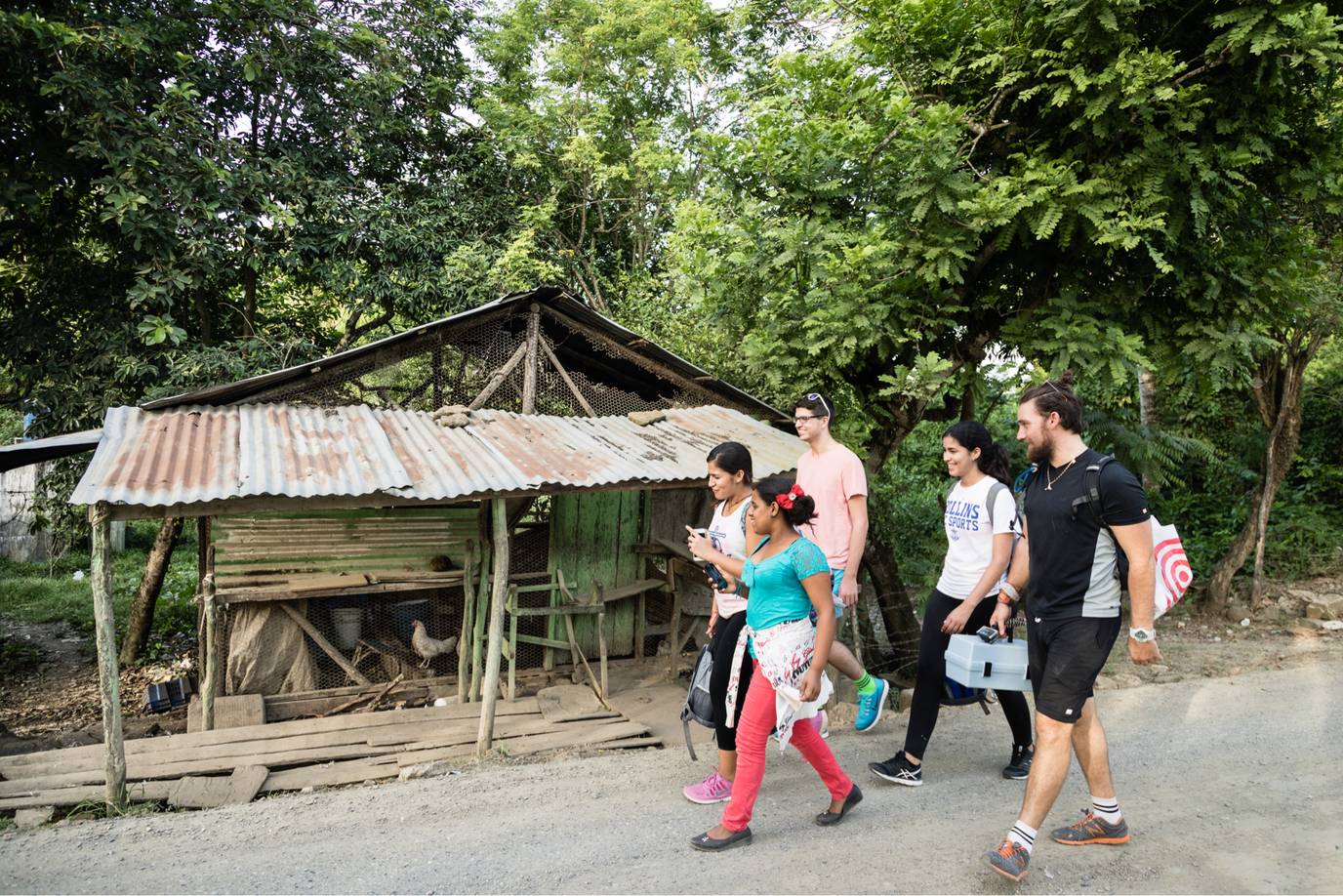
A dozen reasons why Rollins is one of the best colleges in the country at preparing students to lead positive change in the world.
This fall, Rollins became one of the first colleges in the world to launch a major in social innovation. The interdisciplinary degree program equips students to seek out and address societal problems in creative, systemic, and sustainable ways and prepares graduates to thrive in fields like public policy advocacy, nonprofit leadership, and community organizing.
It’s a fresh example of the College’s commitment to preparing Rollins students to lead lasting change in communities in our backyard and around the world, and the latest in a long line of innovative initiatives that have placed Rollins firmly on the forefront of changemaking.
The advent of the new major prompted us to take stock of the College’s social innovation, social entrepreneurship, and community engagement credentials. From elite accreditation and exclusive designations to the superlative success of our students on the world stage, we discovered a changemaking resume that stacks up to any college in the country.
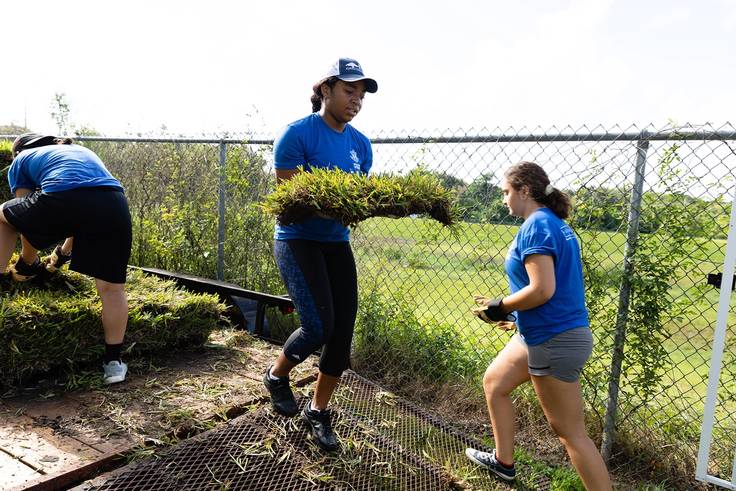
Seeds of Service
In the 13 years since Rollins founded SPARC Day, nearly 9,000 Tars have contributed more than 36,000 hours of service to an average of 24 community organizations each year. Anyone who has participated in the annual day of service knows that the event’s impact stretches well beyond what numbers alone could ever indicate. Each year, SPARC Day plants the seeds of service in the hearts and minds of a new generation of Rollins students, giving them a small taste of what can happen when they put their ideas to work in the world—all before they ever set foot in a classroom.
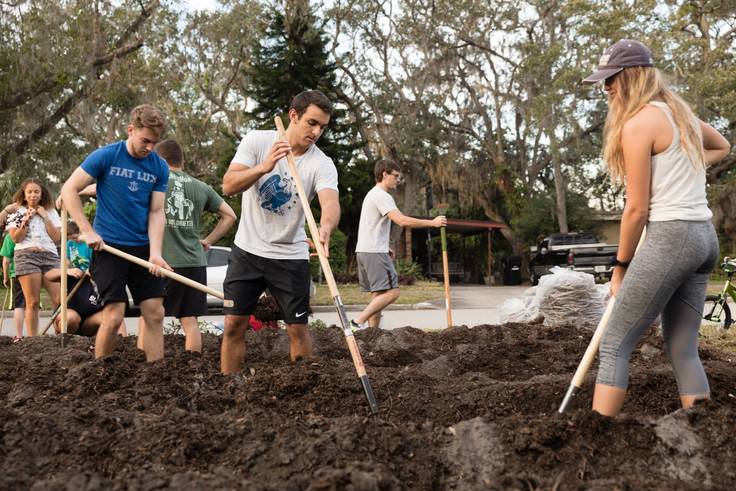
A Campus Committed to Change
Back in 2012, the College’s social innovation ecosystem and pioneering business culture received the largest possible vote of confidence. Rollins became the first liberal arts college in the South and the first college in Florida to earn Ashoka U’s Changemaker Campus designation, which is awarded to institutions that are dedicated to making higher education the next global driver of social change. Rollins joined the likes of Cornell, Duke, and Johns Hopkins as one of the first 15 colleges in the country to earn the elite designation from Ashoka U, the world’s leading network of social entrepreneurs. Ashoka U renewed the College’s Changemaker Campus designation in 2016, reaffirming Rollins’ place on the cutting edge of social innovation and changemaking.
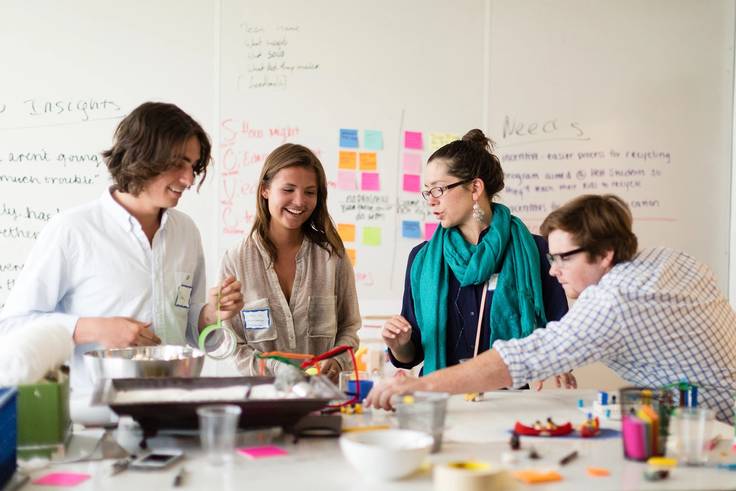
Business Not as Usual
Rollins’ social entrepreneurship degree program is the first of its kind to earn accreditation from AACSB International, the premier evaluator of quality business programs for more than a century. Yes, you heard that right. Not Harvard or Oxford, MIT or Penn. Rollins is leading the way in this new breed of business degree. Founded in 2013, the social entrepreneurship major combines entrepreneurial thinking and action, cutting-edge problem-solving techniques, and best practices from business skill sets. Graduates from the program are well positioned to find—or create—careers that apply innovative and sustainable solutions to the world’s most pressing challenges.
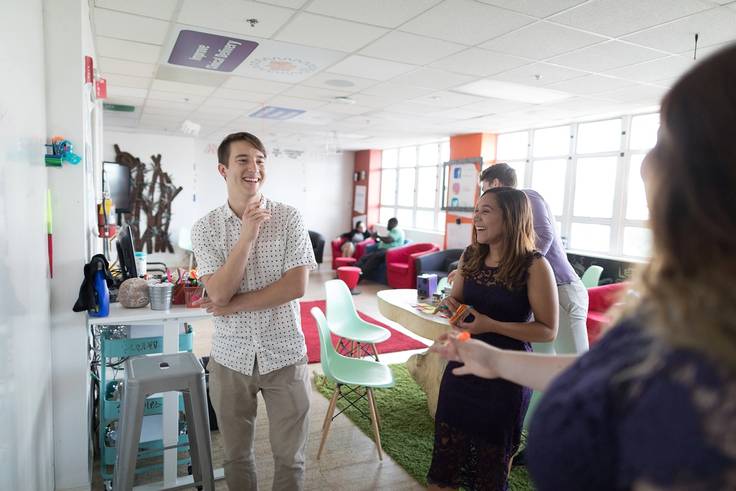
A Winning Idea
This past spring, Nikki Hall-Elser ’18, Matias Meirelles Van Vliet ’19, Dayra Diaz-Marquez ’18, and Kinsley Gerks ’20 bested teams from nearly 50 international institutions, including Yale, Cornell, Brown, and UC Berkeley, to win the San Francisco regional of the 2018 Hult Prize. Known as the Nobel Prize for students, the Hult Prize is the world’s largest engine for launching for-good, for-profit startups that emerge from universities. The quartet of social entrepreneurship majors was one of 50 teams worldwide to advance to the Hult Prize startup accelerator, where they spent eight weeks in a London castle developing their sustainable-power enterprise with the support of the world’s top entrepreneurs, investors, and business leaders. Now, their social enterprise, BatterEASE, is working to bring sustainable energy to the 2.2 billion people who live without reliable access to power while also keeping electronic waste out of landfills.
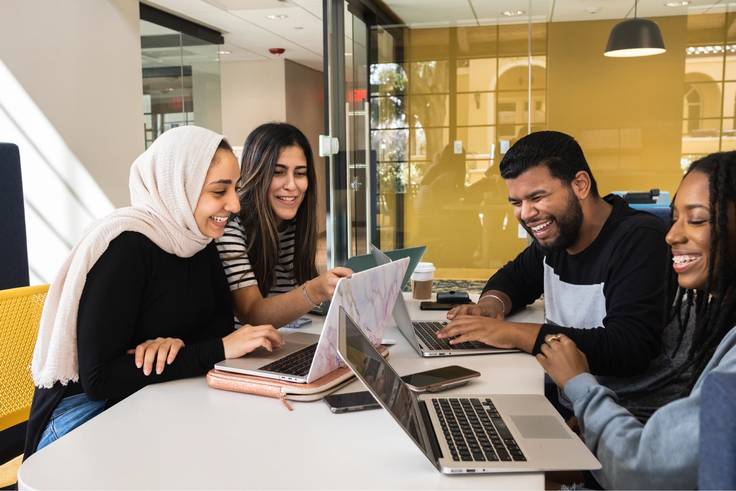
Solutions Central
Rollins students looking to channel their passion for social change into solution- oriented action need not cross the Atlantic like Team BatterEASE—a short stroll across campus will suffice. Launched in 2010 by the Crummer Graduate School of Business’ Center for Advanced Entrepreneurship, the Social Innovation & Entrepreneurship Hub has evolved into Rollins’ on-campus incubator for changemaking. Led by full-time staff director Patrick Odoyo and faculty director Dan Chong, the Hub provides Rollins students, faculty, and staff with tools and resources to address local and global social issues with big, innovative, system-changing solutions. Next fall, the Hub will be a key tenant of the renovated Mills Memorial Center, where it will share a floor with several like-minded programs such as the Center for Leadership & Community Engagement, the Social Entrepreneurship Program, and the student-run Sustainability Program.
Accelerating Impact
A year ago, Rollins helped launch Rally, Central Florida’s social enterprise accelerator, with the goal of establishing Orlando as a national hub for social innovation and entrepreneurship. The accelerator, which is housed on Rollins’ campus, is well on its way, having nurtured more than a dozen local ventures in its first 12 months. Rally provides an immersive 16-week mentorship experience designed to help the region’s most promising social enterprises and founders turn their visions into sustainable ventures. Thanks to founding partners Central Florida Foundation, Clean the World, Downtown Credo, Entrepreneurs in Action, and Rollins—a who’s who of the local social enterprise ecosystem—Rally is one of the nation’s few accelerators that can provide the education, mentorship, resources, networking, and funding to help early-stage social entrepreneurs develop their ideas and launch ventures that make a difference.
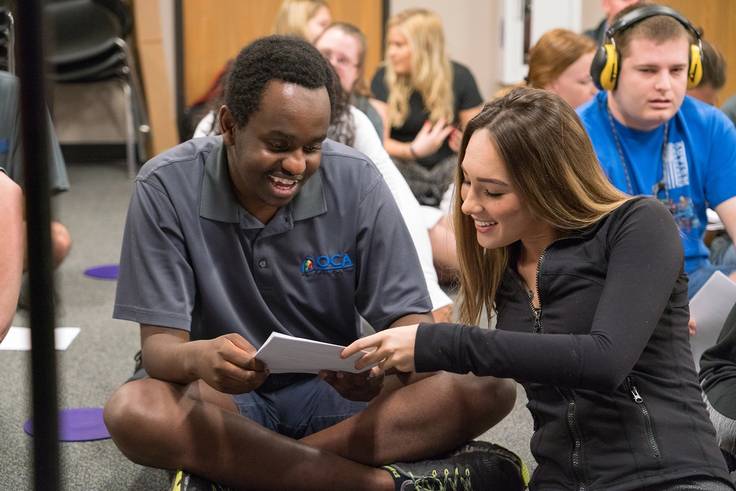
Being a Good Neighbor (and Getting Credit for It)
This fall, students in theater professor Marianna DiQuattro’s Create With Me course are examining the growing field of drama therapy while co-creating theater with a group of individuals with disabilities from Opportunity, Community, Ability (OCA), an Orlando nonprofit that serves children and adults with special needs. Meanwhile, students in communications professor Ted Gournelos’ New Media and Public Relations class are creating strategic digital materials to help increase engagement with a pair of local nonprofits that are dedicated to fighting hunger and empowering children through 3-D-printed prosthetics. Each semester, Rollins offers dozens of community engagement courses like these, partnering Rollins students with some of Orlando’s most innovative organizations and helping Tars apply what they’re learning in the classroom to make a difference right in our backyard.
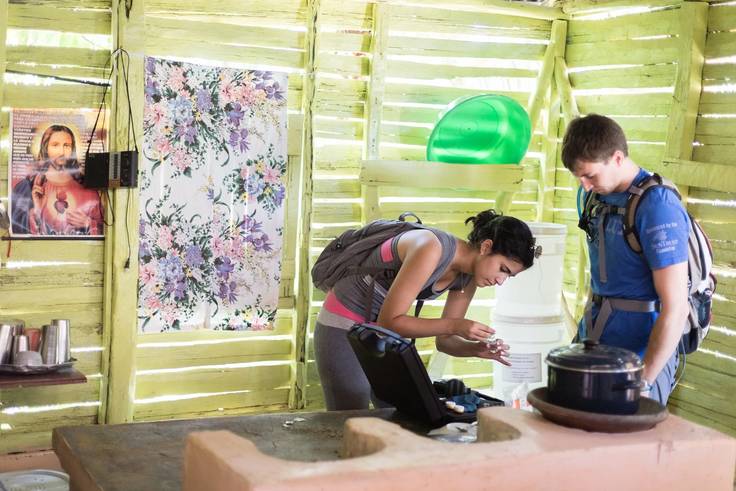
Going All In
From addressing access to safe drinking water in the Dominican Republic to helping preserve one of America’s most dramatic landscapes, Rollins’ Immersion experiences allow students to engage some of the world’s most pressing issues through weekend and sometimes weeklong journeys of education, reflection, and action. These transformative trips have become bucket-list experiences for Tars, which is a big reason why the College has ranked No. 1 nationally for the highest percentage of students who participate in alternative breaks for four of the past six years. During the 2017–18 academic year, the College organized 22 Immersion experiences in which 331 Tars contributed more than 3,800 hours of service at more than 45 community organizations and nonprofits. From Apopka, Florida, to Portland, Oregon, students tackled a range of complicated issues like homelessness, immigration, poverty, minority rights, and environmental preservation.
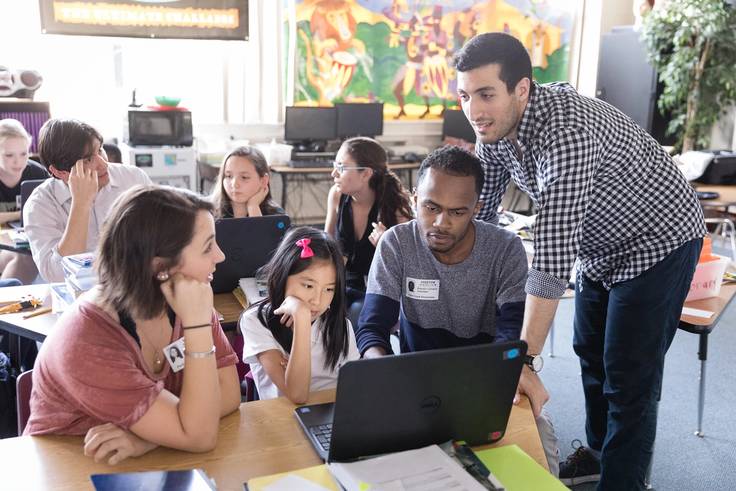
Learning to Lead
During her first year at Rollins, studio art major Meredith Ewen ’19 developed an immersive art program for an Orlando nonprofit that serves children and adults with special needs. A year later, computer science major Sam Sadeh ’18 founded an after-school coding program for students in local Title I schools that earned funding from Google. Both Ewen and Sadeh learned how to lead powerful change in their community through Rollins’ Bonner Leaders Program, a four-year community service opportunity administered through the Center for Leadership & Community Engagement to provide scholarships and enrichment to students passionate about volunteering.
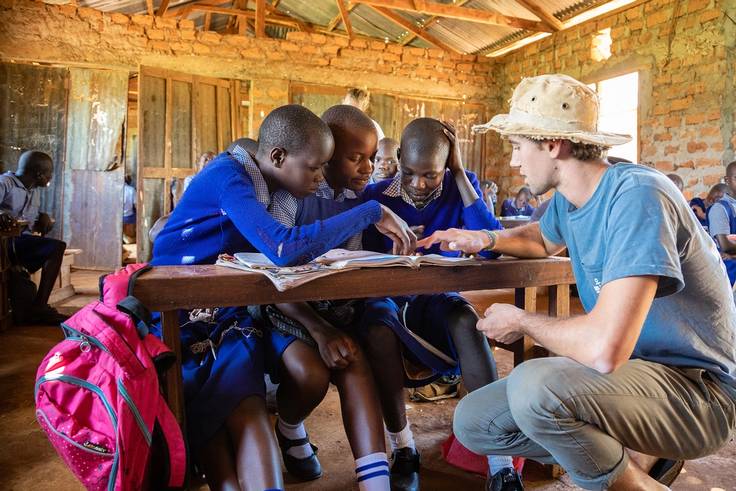
Squad Goals
This fall, a cohort of 15 Rollins students is working to advance the United Nations Sustainable Development Goals through a prestigious leadership development program called the Millennium Fellowship. Students from 285 campuses across 57 nations applied to the highly selective fellowship, which was launched this year by the United Nations Academic Impact (UNAI) initiative and the Millennium Campus Network (MCN). Rollins was one of just 30 colleges worldwide selected to host the global pilot program. From reducing hunger and inequality to increasing access to quality education and clean water, Rollins’ Millennium Fellows are tackling more than half of the United Nations’ 17 Sustainable Development Goals that were adopted in 2015 to end poverty, protect the planet, and ensure prosperity for all.
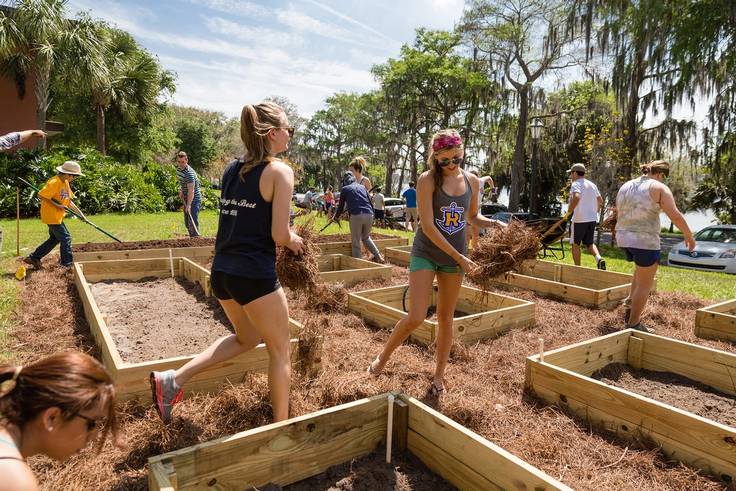
Sustainable Success
Over the years, Rollins’ student-run Sustainability Program has spearheaded everything from the College’s Fair Trade-campus designation and bike-share program to an urban farm that supplies fresh, organic produce to campus dining services. Expect that already impressive impact to grow. In Kathleen W. Rollins Hall, these environmental entrepreneurs have a dedicated workspace to dream up new and better ways to help save the planet.
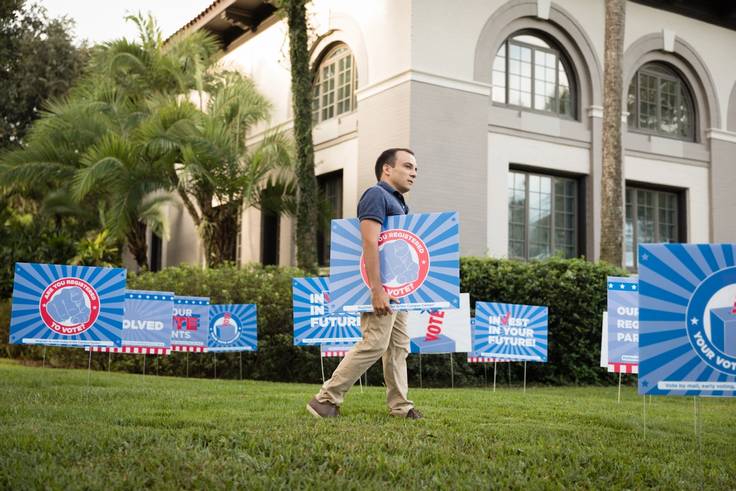
Electoral Prowess
While Rollins’ resume is packed with cutting-edge changemaking credentials, the College is also uncommonly good at engaging students in one of the more traditional means of effecting change: voting. This past August for the second consecutive year, Rollins was named a voter-friendly campus by a pair of national nonpartisan organizations, the Campus Vote Project and Student Affairs Administrators in Higher Education. Rollins was one of just 150 campuses nationwide to receive the designation. Members of Rollins’ student-led Democracy Project create a comprehensive, strategic road map to engage students in the electoral process, from monthly voter-registration drives to hosting debates between local candidates to providing transportation to the polls.
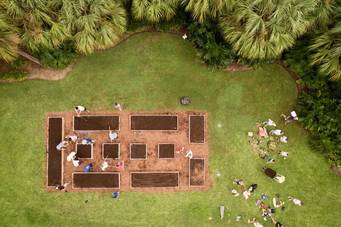
A Campus Committed to Change
Rollins is one of just 42 colleges in the world to earn Ashoka U’s Changemaker Campus designation, which recognizes the leading institutions in social innovation and changemaking.
Read More
July 08, 2024
Gunter’s Book on Climate Change Receives Multiple Awards
Political science professor Mike Gunter’s book Climate Travels recently won awards from Foreword magazine and the American Library Association.
June 27, 2024
Lahlou ’24 Earns Boren Scholarship
Adam Lahlou ’24 has earned a Boren Scholarship, a prestigious award reserved for students who intend to pursue careers in federal national security.
June 17, 2024
A Path to Purpose
Falecia Williams ’91 expanded her world by earning a Rollins degree. Now, she is working to expand the worlds of thousands of college students.
